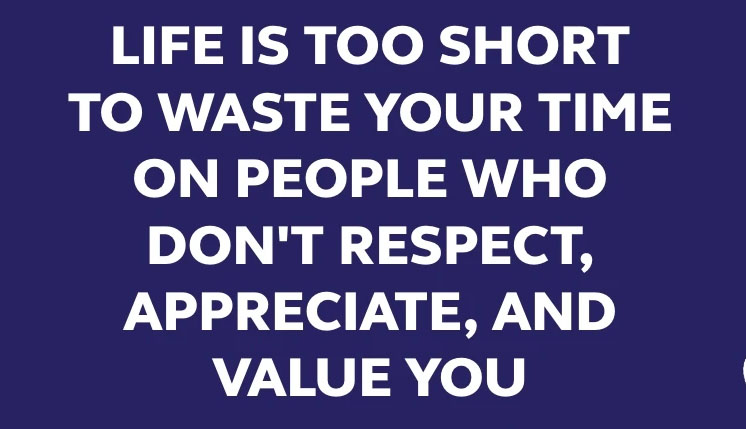
Respect:
Understanding Its Importance for Yourself and Others
Respect is a core value that is essential to our everyday interactions and relationships. It’s something that everyone deserves, but it’s also something we have to give to ourselves and to others. When we talk about respect, we’re not just talking about being polite or following social rules. It’s about recognizing the worth of both yourself and the people around you and treating them with kindness, consideration, and empathy. Respect also involves setting healthy boundaries and understanding how your actions affect others.
In today’s fast-paced, connected world, respect has become more important than ever. Whether it’s online or in person, respect plays a crucial role in maintaining healthy relationships, fostering a positive environment, and promoting mental well-being. Understanding the deeper meaning of respect, how to set boundaries, and how it impacts both yourself and others is key to creating a more compassionate and supportive world.
Respect for Yourself:
Setting Boundaries and Prioritizing Your Needs
The first step in understanding respect is learning to respect yourself; recognizing your value and treating yourself with care and kindness. When you respect yourself, you acknowledge your worth and make choices that support your well-being. Part of respecting yourself is knowing your limits, identifying what feels comfortable for you, and setting boundaries. Boundaries are the lines you draw to protect your physical, emotional, and mental space from being invaded or disrespected by others.
For example, saying “no” when you’re feeling overwhelmed or don’t want to do something is an important act of self-respect. It might feel uncomfortable at first, especially if you’re worried about letting others down or feeling guilty. However, saying “no” when necessary is crucial for maintaining your mental and emotional health. It’s important to remember that setting boundaries doesn’t make you selfish or rude—it makes you responsible for your own well-being.
Having self-respect also means taking care of your body and mind. It’s about making decisions that benefit you, whether it’s getting enough sleep, eating nutritious food, or surrounding yourself with people who lift you up rather than bring you down. When you respect yourself, you are more likely to feel confident and empowered, which positively impacts how you interact with others.
Respect for Others:
Understanding the Impact of Your Actions
Respecting others is just as important as respecting yourself. It means recognizing that everyone has their own experiences, opinions, and feelings. In today’s diverse world, people come from different backgrounds, cultures, and walks of life, and respecting those differences is key to creating a harmonious environment.
One way to show respect for others is by listening to them. Active listening, where you genuinely pay attention to what someone is saying without interrupting or judging them, is a powerful way to show respect. It lets the other person know that their thoughts and feelings are valuable. When you listen respectfully, you are giving people the space to express themselves and share their ideas, which can lead to better understanding and stronger relationships.
Another important aspect of respecting others is empathy. Empathy involves trying to understand what someone else is going through and seeing the world from their perspective. It’s about being kind, considerate, and compassionate, even when you don’t agree with them. In an age where social media often encourages division and conflict, practicing empathy can help bridge gaps and reduce misunderstandings.
Respect also involves being mindful of how your words and actions affect others. A simple comment, a joke, or a piece of body language can have a lasting impact on someone’s feelings. For example, if you make a joke at someone else’s expense, it might hurt them, even if you didn’t mean to. By being aware of the potential consequences of your actions, you can ensure that you treat others with the dignity they deserve.
The Effect of Respect on Relationships and Well-Being
Respect is the foundation of strong and healthy relationships, whether they are personal, professional, or social. When respect is mutual, relationships are more likely to thrive. On the other hand, when respect is lacking, relationships can break down, leading to feelings of resentment, hurt, and anger. This is why it’s so important to be mindful of how we treat others and how we let others treat us.
Respect also plays a significant role in mental and emotional well-being. When you respect yourself, you are more likely to make choices that prioritize your health and happiness. Setting healthy boundaries ensures that you are not overwhelmed by the expectations of others, and it helps you maintain a sense of control over your life. Likewise, when you show respect for others, it fosters positive interactions that can lead to stronger support systems, which are vital for maintaining mental health.
In contrast, when respect is lacking, it can lead to stress, anxiety, and feelings of isolation. Disrespectful behavior, whether it’s bullying, ignoring someone’s boundaries, or treating them unfairly, can cause emotional harm. This is why it’s crucial to make respect a priority in all of your interactions.
The Power of Respect
Respect is not just a social nicety—it’s a powerful tool that shapes the way we live and interact with others. By respecting yourself and setting healthy boundaries, you can take charge of your well-being and make choices that support your mental health. By showing respect to others through kindness, empathy, and active listening, you can build strong relationships and contribute to a more positive and supportive environment.
In today’s world, where conflicts can arise from misunderstandings and differences, respect is a key ingredient for building connections and fostering understanding. Whether online or in person, respecting yourself and others is a choice that can have a lasting impact on everyone involved. So, take a moment to reflect on how you treat yourself and those around you, and remember that respect is a value that benefits everyone.
Respect